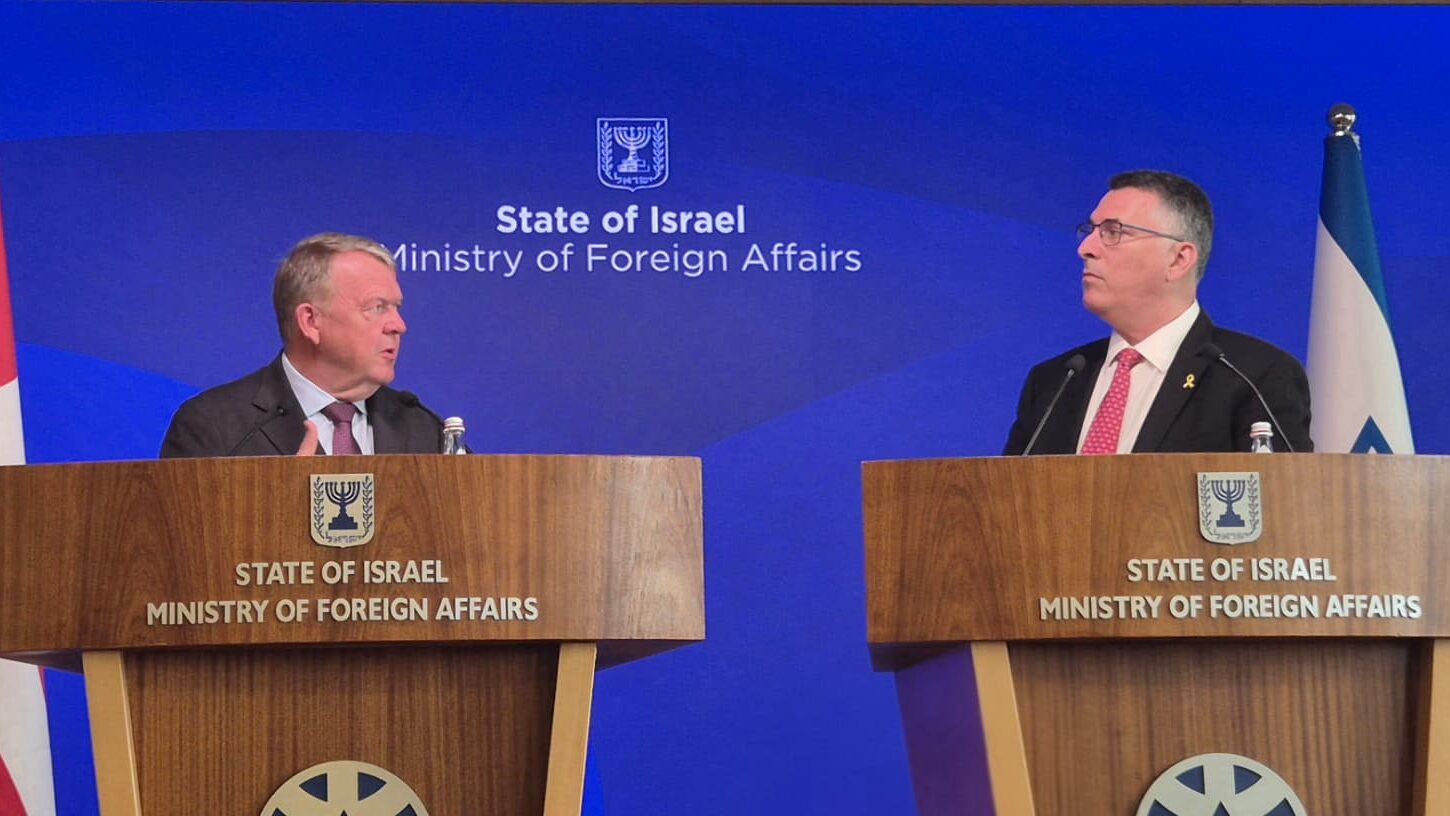Israeli Foreign Minister Gideon Sa’ar and Danish Foreign Minister Lars Løkke Rasmussen clashed Sunday over humanitarian access to Gaza and the prospect of recognizing Palestinian statehood, exposing deepening tensions between Israel and Europe during a joint press conference in Jerusalem.
Rasmussen sought to affirm Denmark’s friendship with Israel while admitting his country was “a concerned friend.” He reiterated Copenhagen’s willingness to fund medical treatment for Gazans but emphasized the care would not be provided inside Israel. “I reiterated Denmark’s offer to help assisting with the treatment of patients from Gaza in East Jerusalem and the West Bank,” he said. “It would, of course, have been much easier if you would allow transport of the patients from Gaza to East Jerusalem, but I can’t force you to do that, even though it could save many lives.”
Sa’ar bristled at the suggestion, turning the question back on Denmark. “It’s a war, and we have our security concerns. I can ask why does Copenhagen not want to get these patients as well?” he asked pointedly. He added that Israel would examine “constructive” alternatives through a joint team but refused to concede on the specific request.
Tensions sharpened further when the issue of West Bank settlements arose. “I also expressed our deep concern [about] the expansion of settlements in the West Bank,” Rasmussen said, reflecting European alarm over recent Israeli announcements. Sa’ar avoided specifics but repeated his rejection of unilateral recognition of Palestinian statehood. “Those states like France and the UK that pushed their so-called recognition … have made a tremendous mistake,” he warned.
The Danish foreign minister left little doubt that Europe was reconsidering its approach. “We are not ready yet to recognize [a Palestinian state], but our position is that we cannot allow anyone to have a de facto veto over the position,” Rasmussen declared. He explained that while Denmark traditionally backed recognition only after a negotiated two-state solution, repeated Israeli statements rejecting Palestinian sovereignty could alter that stance. “We will never recognize a Palestinian state ruled by Hamas or any other terrorist organization,” he said. “But we cannot give either Israel or others a veto on the Danish position.”
Sa’ar reacted sharply, insisting that Palestinian institutions had failed every test of credibility. “They reward and encourage terrorism by the Pay for Slave doctrine, by paying salaries for terrorist families,” he said. “The incitement in the kindergarten, in schools, in textbooks … this is already poisoning the minds of the new generation. Without disconnecting from these problems, you cannot build a reliable peace process.”
Both ministers attempted to downplay their disagreements by stressing areas of cooperation. Rasmussen noted that while there had been “no major breakthrough,” Denmark and Israel would pursue investments in Gaza and other joint projects. Sa’ar emphasized Israel’s openness to dialogue but insisted peace and statehood must remain inseparable. “You cannot disconnect statehood from peace,” he said, warning that unilateral moves would only “destabilize the region.”
Yet the atmosphere reflected the depth of disagreement. At several points, comments by one minister drew visible reactions from the other—a stiffened posture, a glance, or a pause before continuing. Rasmussen described himself as a “friend” but argued that friends must also speak difficult truths. Sa’ar portrayed European pressure as part of what he called an “anti-Israel obsession” and warned against “a tremendous mistake.”
With the war in Gaza entering its 24th month, the encounter underscored the fault lines between Israel and Europe: humanitarian urgency colliding with security concerns, and Europe’s growing openness to Palestinian recognition clashing with Israel’s insistence on bilateral negotiations. Rasmussen’s words captured the divide: “We cannot give anyone a veto.”
